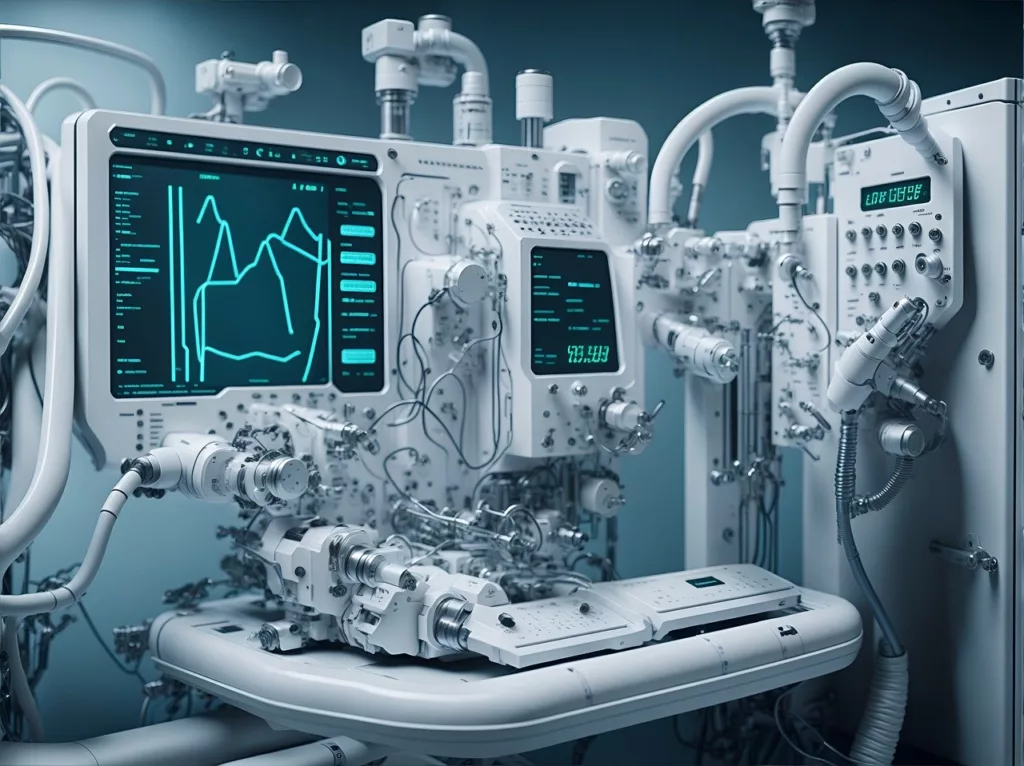“In recent years, the integration of artificial intelligence (AI) in healthcare has been nothing short of revolutionary. From early diagnosis and personalized treatment plans to administrative tasks and patient care, AI has found its way into various facets of the healthcare industry. In this article, we will explore the vast potential of healthcare AI, its current applications, and the promising future it holds for improving patient outcomes and healthcare delivery.
The Power of Healthcare AI
Healthcare AI refers to the use of AI technologies and machine learning algorithms to analyze, interpret, and process healthcare data. This data can include medical records, imaging, patient histories, and more. By harnessing the power of AI, healthcare professionals can make more informed decisions, enhance patient care, and streamline administrative processes.
Applications in Healthcare
1. Disease Diagnosis and Early Detection: AI algorithms can analyze medical images such as X-rays, MRIs, and CT scans to detect diseases and abnormalities at an early stage. This leads to quicker interventions and improved patient outcomes.
2. Personalized Treatment: AI can analyze patient data to create personalized treatment plans, taking into account individual genetics, medical history, and responses to previous treatments.
3. Predictive Analytics: Healthcare AI can predict disease outbreaks, patient readmissions, and resource needs, helping hospitals and healthcare systems better allocate resources and plan for the future.
4. Administrative Efficiency: AI-driven chatbots and virtual assistants can handle administrative tasks such as appointment scheduling, billing inquiries, and patient communication, freeing up healthcare staff for more critical tasks.
5. Drug Discovery: AI accelerates drug discovery by analyzing vast datasets to identify potential drug candidates and streamline the research and development process.
Enhancing Patient Care
Healthcare AI has the potential to significantly enhance patient care in several ways:
1. Faster and More Accurate Diagnoses: AI can assist healthcare providers in making faster and more accurate diagnoses, reducing the time it takes to identify and treat illnesses.
2. Improved Treatment Outcomes: Personalized treatment plans based on AI analysis can lead to better treatment outcomes and fewer adverse reactions.
3. Reduced Healthcare Costs: Predictive analytics and preventive measures can help reduce healthcare costs by avoiding unnecessary hospitalizations and procedures.
Challenges and Ethical Considerations
While healthcare AI offers immense potential, it also presents challenges and ethical considerations. These include concerns about data privacy, the need for robust regulations, and ensuring that AI-driven decisions are transparent and explainable to both healthcare professionals and patients.
The Future of Healthcare AI
The future of healthcare AI is promising. As technology advances, AI algorithms will become even more sophisticated, enabling healthcare providers to deliver more precise and personalized care. Additionally, the adoption of AI-powered medical devices and telemedicine is likely to continue growing, expanding access to healthcare services.
Healthcare AI is reshaping the landscape of medical services by improving diagnosis, treatment, and administrative efficiency. While challenges exist, the potential benefits for patients and healthcare providers are substantial. As AI technology continues to evolve, it holds the promise of transforming healthcare into a more accessible, efficient, and patient-centered industry.

